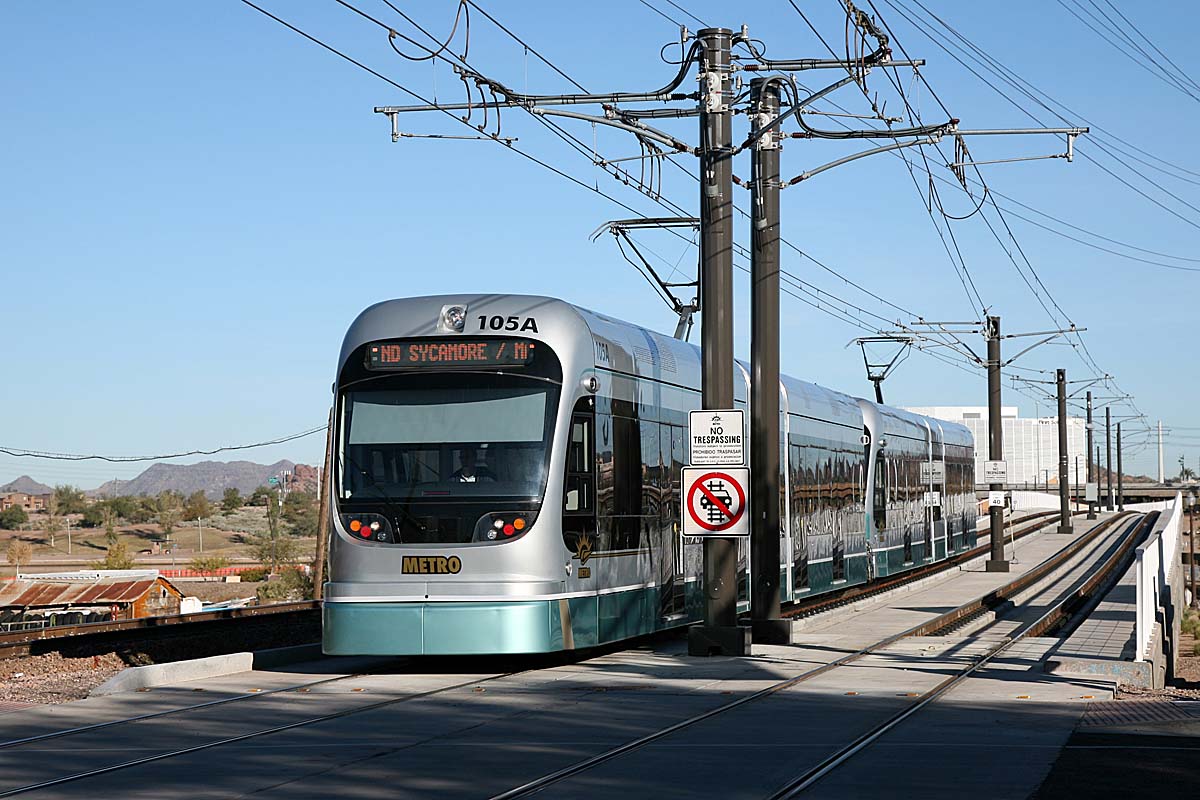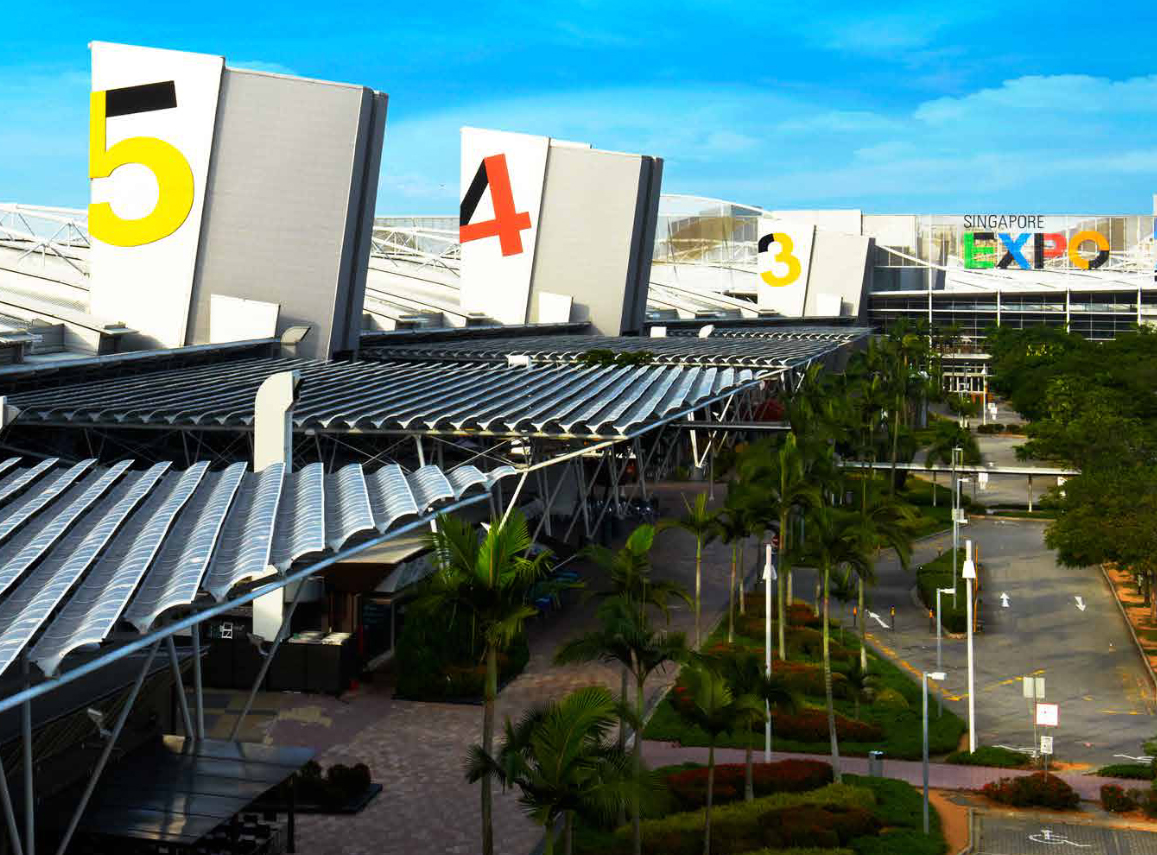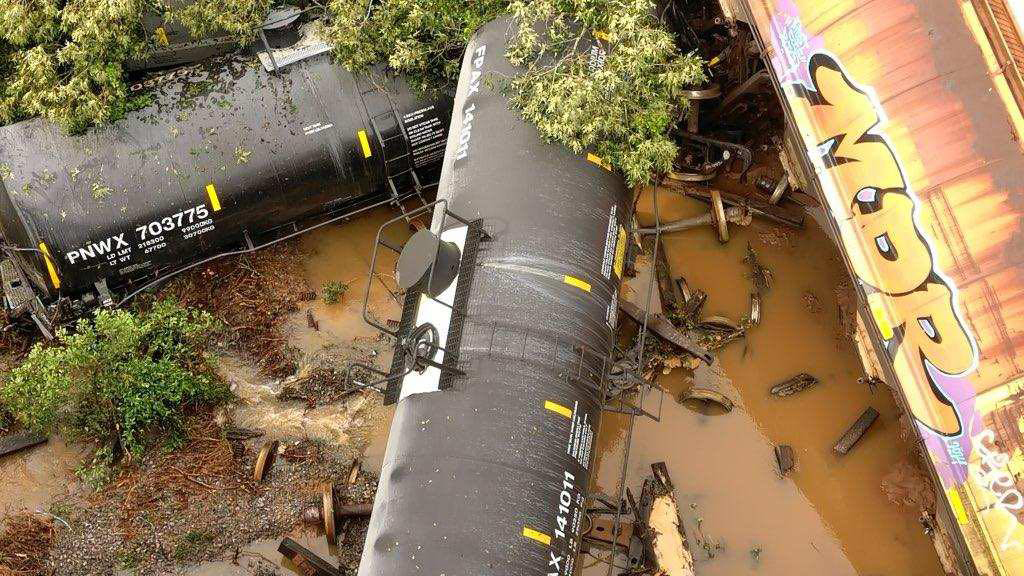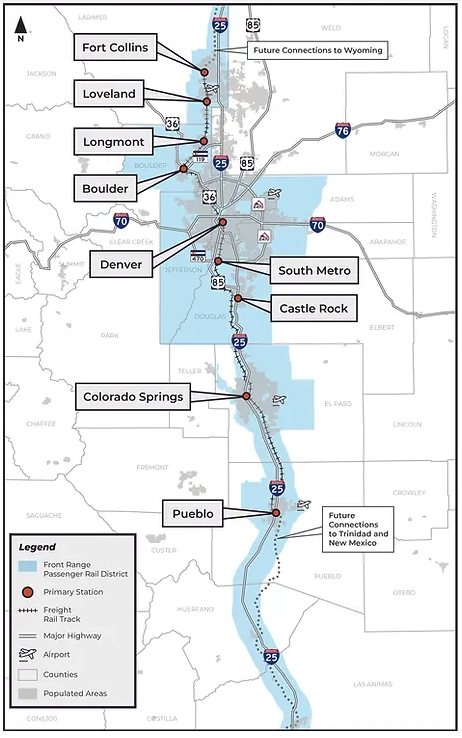Among the projects at risk are the South Central extension and downtown transit hub, which recently received a $100 million grant from the Federal Transit Administration. Phase two of the Northwest extension and the Capitol/I-10 West extension would lose city funding as well, effectively killing both projects.
The measure, as worded, also prohibits funding “for the construction, development, extension or expansion of, or improvement to any light rail or any other fixed rail line transit system.” Plans for commuter rail and a proposed Phoenix-to-Tucson intercity service would die. Any possible return of Amtrak to Phoenix would be impossible if city funding were involved, as for a new or renovated station.
Transit advocates point out that the language of the ballot measure could even prevent replacing existing light rail cars as they age, which might be contested as an “improvement” to the system.
“Voters were wise when they voted not once, not twice, but three times to support light rail in Phoenix,” said Mayor Kate Gallego in her state of the city address on June 13. “But a small ideological group wants us to throw out years of economic development and reverse course with Proposition 105.”
Gallego says that light rail has created 35,000 permanent jobs and spurred $11 billion of investment along its line. Valley Metro carried nearly 16 million light rail riders in 2018.
The anti-rail measure began in reaction to the loss of two roadway lanes on Central Avenue, which were given over to the South Central extension. Some local business owners objected but failed to prevent the project from going forward.
Jeff Sherman, chair of the Downtown Voices Coalition, tells Trains News Wire that opponents “joined with anti-transit groups to oppose that line and then attacked all rail-based transportation in the city of Phoenix.”
Sean Sweat, president of the Urban Phoenix Project, says that a few wealthy landowners and some car dealerships provided money or support and were able to put Proposition 105 on the ballot. He claims they were also behind the demise of the planned West Phoenix extension.
A long list of light rail supporters in Phoenix is led by groups including AARP Arizona, the Arizona AFL-CIO, United Phoenix Firefighters, and the Greater Phoenix Chamber of Commerce.
“If Prop 105 were to pass, our region would lose roughly $5 billion in federal and regional funds to other cities,” writes David Skinner, co-chair of the Chamber. “If we want to continue to move forward and advance our region, we must support increased mobility and a robust transit system that encompasses a vibrant light rail system.”
The roster of rail opponents is far shorter. Fronting the fight for Proposition 105 is Building a Better Phoenix, registered as a political action committee with the city. Its website states that it is seeking to “stop the destructive $7 billion dollar expansion of light rail throughout the city of Phoenix.”
Susan Gudino, treasurer of the PAC, writing in the Sonoran Alliance, a self-described conservative political blog, states, “All we are trying to do is save our community from a stagnant permanent fixture that will increase crime, traffic congestion and bankrupt countless small businesses, many of which have been around for decades.”
Rail opponents argue that funds are better spent on roads and buses.
A campaign finance report filed with the city of Phoenix shows the PAC taking in $68,095 in contributions for the election cycle through June 30. Those opposing Proposition 105 may have a larger pool of money available, Sweat believes.
No polling is available at present, and the sources contacted say they have not seen any polls indicating voter sentiment on Proposition 105.
But neither polls nor money can foretell the outcome, as transit advocates in Nashville learned last year. Just a month prior to a vote on a referendum for a $5.4 billion transit plan, a Vanderbilt University poll showed most voters looking favorably on the proposal. It went down to a resounding two-to-one defeat.
For its part, Valley Metro says it is continuing work on all approved projects, which it notes is critical to meeting FTA requirements.
Sweat, of the Urban Phoenix Project, says, “Prop 105 is a direct attack even on the idea that we can turn Phoenix into a place that is much more sustainable and much more livable.”
The editorial board of the Arizona Republic, the state’s largest newspaper, urges a “no” vote on the proposition, calling light rail “a necessary cog in the public transit system.”















What kind of MORON would vote to repeal a popular clean public transportation option that Phoenix has already invested hundreds of millions of dollars in, carries over 50,000 riders a day and has been a positive catalyst for gentrification and sustainable growth along it’s corridor. I ask you – how STUPID do you need to be to bring a proposal like this forward, let alone vote for it. What’s next? – I don’t like sewers – they SMELL! – Let’s put a proposition on the ballot to repeal them! What is actually needed is a LAW that prevents idiotic proposals to repeal essential infrastructure from ever seeing the light of day.
If it passes, the city should put up a referendum to reverse it in Nov 2020…
Until motor vehicle users pay a more full portion of the cost of our roads transit options of any sort will have a tough time of it. The federal gas tax hasn’t been raised since when, 1993? The costs we pay as road users is about half with the other half being paid by sales, property and incomes taxes.
On my first trip to Phoenix one thing stood out and even surprised me: Horrible traffic and lots of bad air in a city where people were supposed to move for their health.
All round the world cities are installing or expanding tram (streetcar) and light rail systems, but special interest groups in the USA seem to know different. Used to live in Phoenix back in the late 80’s. Returned for a visit about 12-15 years ago. I was stunned at how much more busy the roads were (even the Apache Freeway), and how much more difficult and slow it was, even then, to get around in a car. I have also traveled around cities in Germany & Switzerland by tram – easy and convenient. Yea, electric cars are the future (so they say) but that doesn’t solve the congestion problem, unless they are employed as an autonomous taxi system while at the same time private ownership is banned, or at least excluded from cities. Can’t see that going down too well, esp with car dealers!!!!
I see alot of comparisons to Europe and the US.. One thing going for Europe they’re more conscious of zoning than we are here in the US. Hence they don’t have large spread out metro areas such as we do here in the US. So light rail complements their situation. What the US needs is a better Suburban option then what we have now with Metrolink, Metra, etc… How about a one seat ride from Riverside, CA to Downtown LA? Without having to transfer.. We need something that serves the city and suburbs with minimal to no transfer. Equipment that can operate on your street and on the mainline. Such rolling stock already exist. Look to Stadler they build it!
“The anti-rail measure began in reaction to the loss of two roadway lanes on Central Avenue, “
There’s the problem right there. In cities with congestion, you don’t take away road lanes, even if it is for transit. That just makes things worse. Find somewhere else to run the transit, like elevated, underground or on a separate right of way. Taking away needed traffic lanes doesn’t help anybody.
Sounds like this is proposal by a coalition of a bunch of sore losers, and those, who do not compromise on principal. And they recruited the car dealers, who may sell a few more cars, to pay for it.
Supporters of Proposition 105 are seeking a return to their perception of the “good ol’ days” of the 1960’s when North America fell behind the rest of the industrial world in passenger rail. All roads and airports with no rail-based transportation is a grave imbalance. This was how urban sprawl developed.
Vote to keep the rail network growing. Do not destroy something that works.
JOHN…as a resident of the Milwaukee area who tends to vote for the ‘haters’, does being strongly opposed to the Milwaukee streetcar mean that you’ll forever label me as one of ‘them’?
Or does the fact that I travel to the Phoenix area once or twice a year and am highly impressed with Valley Metro every time I ride it mean that there’s hope for me?
Or is it possible that the discussions are far more nuanced than you’ll ever admit?
If we could implement a system which isn’t affected by the very traffic jams I’d be looking to avoid and one which covers as much ground as VM, I’d support it and ride it regularly.
GREGG – Isn’t your Tom Steyer and your George Soros also billionaires?
Koch brothers and Cato Foundation in action. Let the billionaires use their money as “free speech” to insure that we are wed to fossil fuels and automobiles.
Once again the specter of partisan politics rears its ugly head. Thanks a brick, John.
JOHN P . There goes the Liberal Meme in the form of John Privara. That someone opposed to a Liberal idea is a “hater”. No, John. The El Paso shooter is a hater. The Ku Klux Klan is haters. The Nahstie Party is haters. Someone who opposes a money-losing train is someone whose opinion (enshrined in the First Amendment) is someone whose opinion differs from yours.
I heard that for eight years, that former Wisconsin Governor Scott K. Walker “hated” trains. (I voted for him several times for Milwaukee County executive, Wisconsin State Assembly, and for governor.) Actually, having once met the guy, I reached the opinion that he had absolutely no emotion about trains one way or the other. He supported the Hiawatha, but he opposed the hopeless proposal for the Madison train. For that, he was labeled as someone who “hates trains”. No, he disagreed with supporters of the Madison train. That’s not “hate”. It’s doing the job he was elected to do. If you don’t agree then vote for someone else.
It’s funny how the “mean party” seems to hate all forms of passenger trains.
Must be part of their Mean-Morality-OCD. Oh well, between the mean party and stupid party the country is really #screwed#.
My opinion ????? (1) I’ve never been to Phoenix, don’t know the system. (2) I don’t believe in tying the hands of elected officials by means of amending the City Charter. If one has an opinion on light rail (or any other local issue) vote for a city council member and mayor who share your view. Or if your candidate doesn’t get elected, live with the majority result in your district.
So bottom line, from what little I know from 1500 miles away I’d tend to oppose the referendum.
THAT BEING SAID, I’m quite uncomfortable with people who assume the worst of others who don’t agree with them. I’d not assume that whoever is backing this referendum is bought and paid for, or represents a special interest or a corrupt interest. It could be they’re just agaist taxes (blindly opposed or opposed with knowledge, erither way). The backers of this referendum are entitled to their opinion. That should be respected.
Mister Downie:
Look at who is funding this and think about what they stand to gain if it passes. Follow the money.
From the article:
“Sean Sweat, president of the Urban Phoenix Project, says that a few wealthy landowners and some car dealerships provided money or support and were able to put Proposition 105 on the ballot. He claims they were also behind the demise of the planned West Phoenix extension.”
The above comments are generic in nature and do not form the basis for an attorney/client relationship. They do not constitute legal advice. I am not your lawyer. Find your own damn corrupt politician.